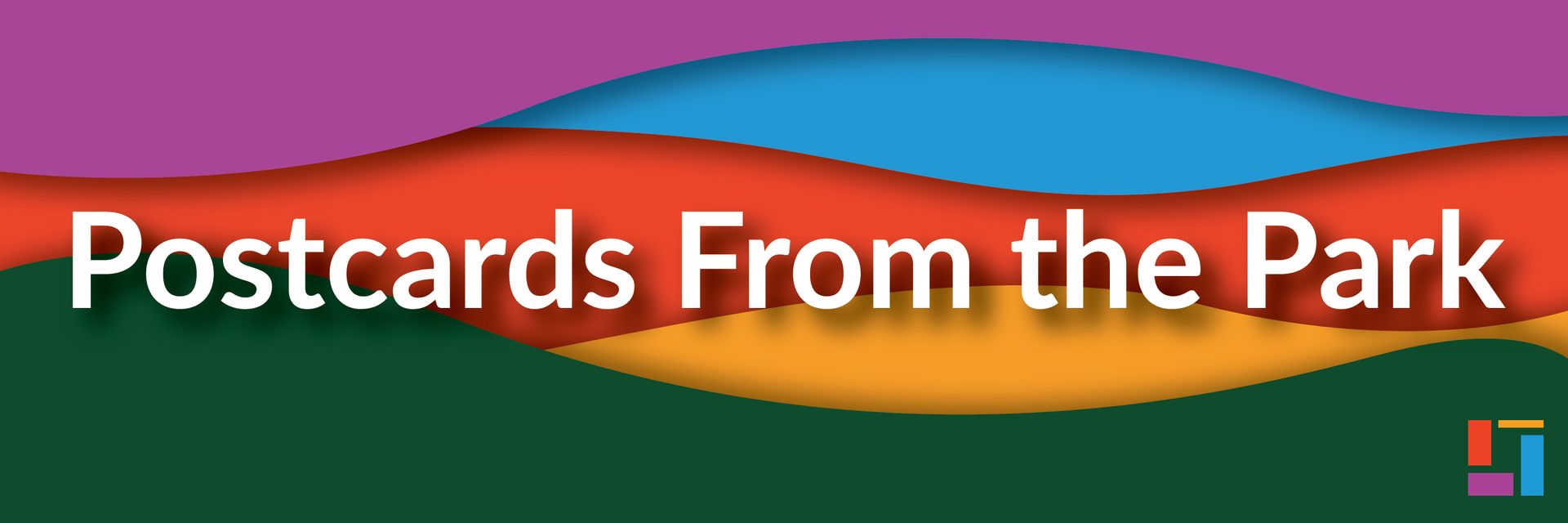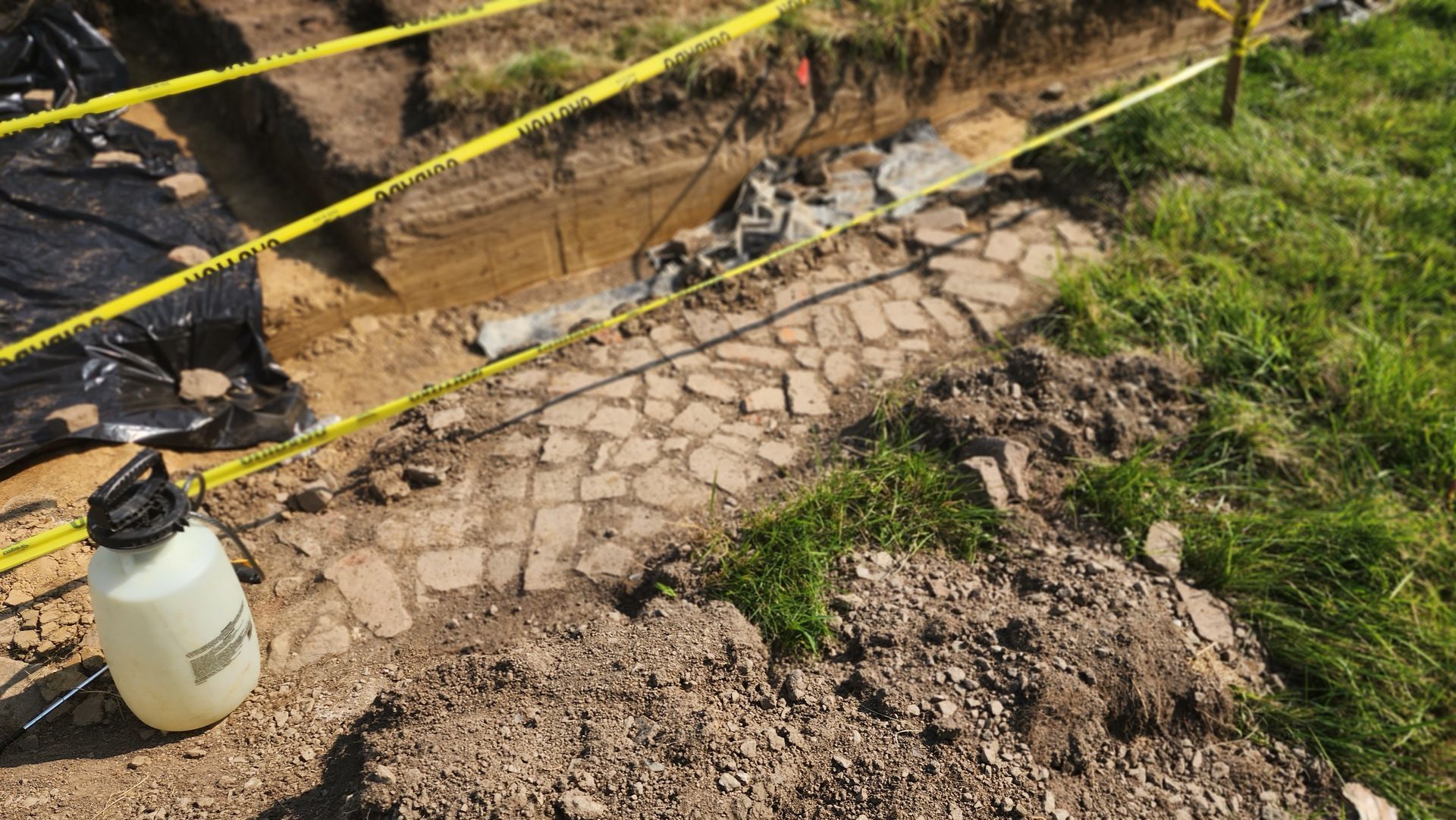
Origin Park, Past and Present

By Kristin Faurest
Part of being a park steward is understanding that you are part of something that will last long after you’re gone – something that was there long before you came on the scene. Lately at Origin Park, we’ve undertaken archaeological research required prior to construction to find out if there are cultural artifacts on the site. Our five-person archaeology team is led by Lisa Kelley, an Evansville-based archaeologist in Cultural Resource Management. Since 2001 Lisa has worked in multiple regions of the country at many levels to find, document, and assess cultural sites for the National Register of Historic Places. We recently went down to the park to check out what’s happening with the exploration. This is an edited interview conducted with Lisa on site.
KF: What research are you doing here?
The site is really fascinating because it spans 8,000 years ago up to houses that were standing here just a few years ago. It’s a pretty transient site – a lot of people have passed through here. We’re at what we call a Phase 2 level: we have already done the Phase 1 to identify the site locations. Based on that it was recommended we do further work to assess where the most significant parts of the site might be. We could find that there aren’t any significant portions of these sites remaining, but we might also go on to recommend a Phase 3 -- a new excavation in areas we haven’t looked at. Then we’d focus on areas where disturbances are planned, like the Event Center and parking lot, to adjust where construction might be. We’ll produce a technical report with the background research, cultural overviews of the time periods we’re interested in, and archival research into the historical occupation. We’ll analyze the artifacts, and we’ll provide a detailed summary of the results with recommendations.
What have you found so far?
The coolest thing we’ve found is a pestle for grinding – it’s amazing that it’s the same tool as what you’d see today, and to think that it’s been laying in there 1,000-2,000 years. You could see the effort that it took to construct it and the care that they gave it, and it’s amazing to be able to hold it and identify what they were using it for, and to link it to something that we use today. We found a couple of projectile point – one may date to the Early Archaic period (8,000-6,000 B.C.E.), the other one looks like it could date to the late Mississippian Period (1,350-1,500 C.E.). We’ve found a lot of FCR – fire craft rock – that they would use in fire pits. That was their heat source. The cobbles out of the river and creek are perfect for that.
What’s the meaning you see in your work here, and why did you become an archaeologist?
We can hearken back to the pestle we found – not to look at Origin Park as a green space that was always a green space. It was a living, occupied place back then. By doing the work that we do it connects the people currently here to the people that were once there. It makes the world a little bit bigger.
When I first started my academic career, I wanted to be a psychologist. I went through a semester and a half and just didn't like how I felt that the discipline (as I saw it) kept trying to put people in "boxes" and classify personas. I took my first anthropology class and was hooked because instead of putting people in boxes, it felt like we were taking past people's out of them. Studying what people left behind is the first piece of the puzzle to build who they were. Material culture is innately unbiased, so it's a unique opportunity to challenge what we think we know about any one group. Even with cultures that have a written record, those records often have bias based on who was writing them. Archaeology offers a unique opportunity to challenge history and those biases. It’s just a pretty cool way to spend a day. You really never know what you're going to find!


